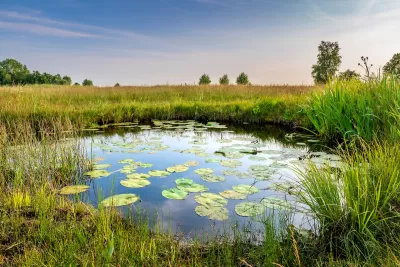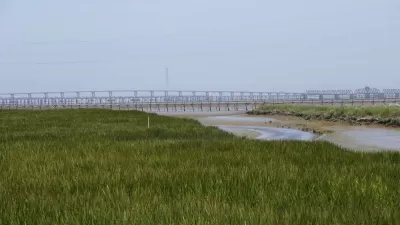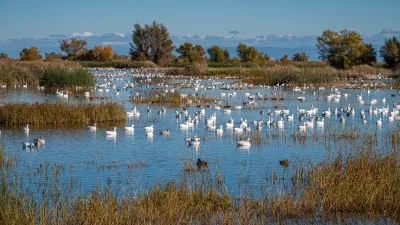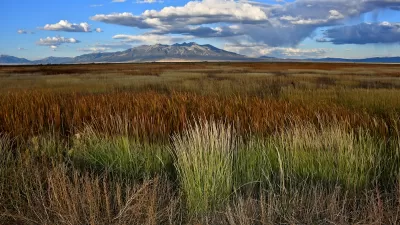The removal of federal oversight of wetlands has left millions of acres unregulated and erected major hurdles for lawmakers seeking to protect them.

After the U.S. Supreme Court’s ruling in May that the Clean Water Act does not cover wetlands, followed by a revised U.S. Environmental Protection Agency rule in August, states and tribes are struggling to enact safeguards for previously protected waters. The loss of federal rules means more than half of the nation’s 118 million acres of wetlands are now unregulated, reports Alex Brown in Stateline.
Lack of funding for existing programs and additional staff for implementation and enforcement, yearslong processes to get new regulations and programs in place, and lack of clarity around exactly which waters have lost federal oversight are three major hurdles for officials and lawmakers in states that are seeking to ensure those waters are not polluted, drained or filled in by developers. Washington, California, and New Mexico are just a few states grappling with this challenge.
“Wetlands play a crucial role in filtering pollution and nutrient runoff. They also absorb stormwater, help to recharge aquifers and provide essential habitat for many species. When wetland areas are lost, water managers say, communities may suffer from flooding, become more vulnerable to droughts or require expensive treatment plants to make water safe to drink,” writes Brown.
A few states are not impacted by the ruling, having already passed protections above and beyond the Clean Water Act, such as Minnesota’s 1991 Wetland Conservation Act. Meanwhile, conservative states see the ruling as an opportunity for developers and industry, including North Carolina, which passed a law eliminating all state protections that exceeded the federal standard.
“The whole point of the Clean Water Act was to ensure that there’s not a patchwork of regulations. Even when EPA had full jurisdiction, there were tons of enforcement issues all across the country. This is only going to exacerbate them,” Julian Gonzalez, senior legislative counsel for policy and legislation at Earthjustice, told Stateline.
FULL STORY: After Clean Water Act ruling, states that want to protect affected wetlands need millions

Planetizen Federal Action Tracker
A weekly monitor of how Trump’s orders and actions are impacting planners and planning in America.

Chicago’s Ghost Rails
Just beneath the surface of the modern city lie the remnants of its expansive early 20th-century streetcar system.

San Antonio and Austin are Fusing Into one Massive Megaregion
The region spanning the two central Texas cities is growing fast, posing challenges for local infrastructure and water supplies.

Since Zion's Shuttles Went Electric “The Smog is Gone”
Visitors to Zion National Park can enjoy the canyon via the nation’s first fully electric park shuttle system.

Trump Distributing DOT Safety Funds at 1/10 Rate of Biden
Funds for Safe Streets and other transportation safety and equity programs are being held up by administrative reviews and conflicts with the Trump administration’s priorities.

German Cities Subsidize Taxis for Women Amid Wave of Violence
Free or low-cost taxi rides can help women navigate cities more safely, but critics say the programs don't address the root causes of violence against women.
Urban Design for Planners 1: Software Tools
This six-course series explores essential urban design concepts using open source software and equips planners with the tools they need to participate fully in the urban design process.
Planning for Universal Design
Learn the tools for implementing Universal Design in planning regulations.
planning NEXT
Appalachian Highlands Housing Partners
Mpact (founded as Rail~Volution)
City of Camden Redevelopment Agency
City of Astoria
City of Portland
City of Laramie





























